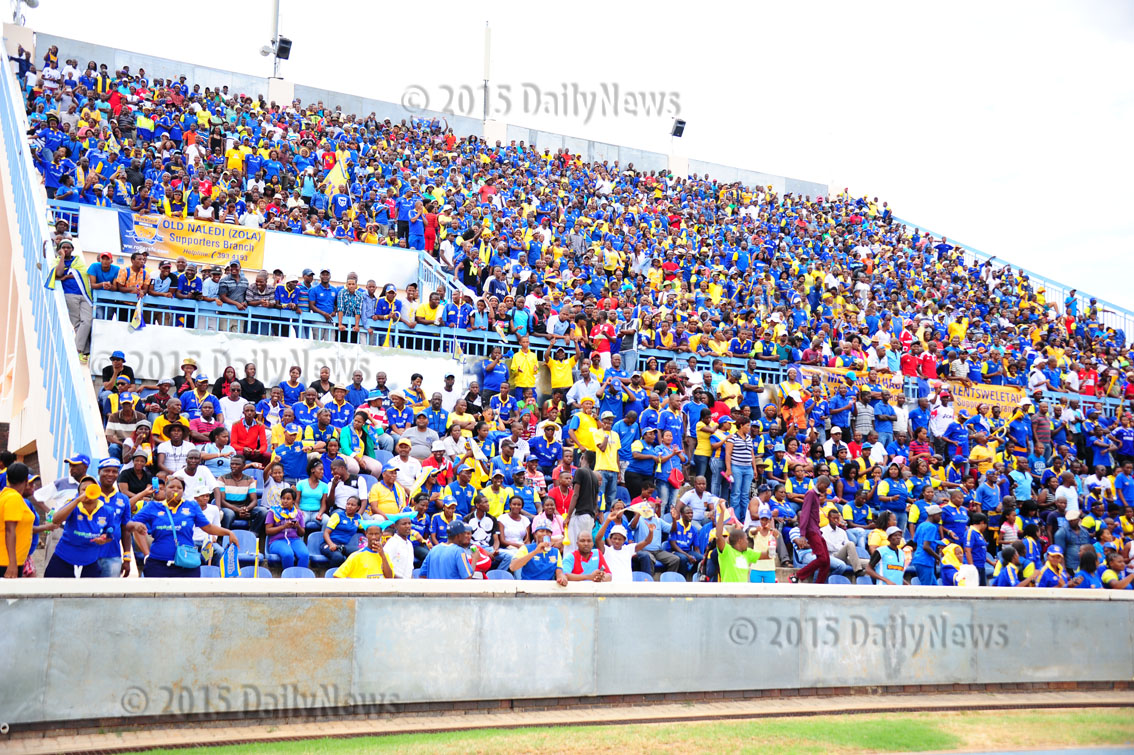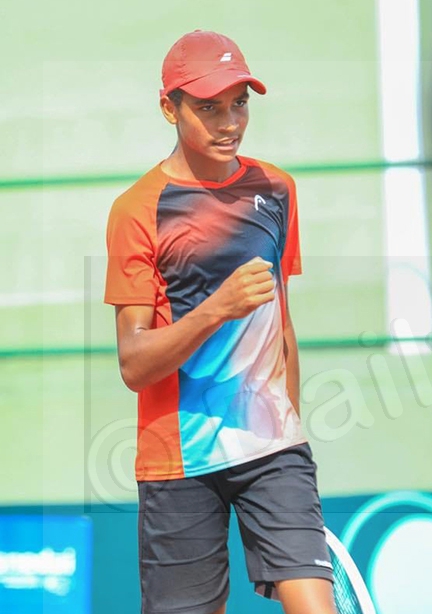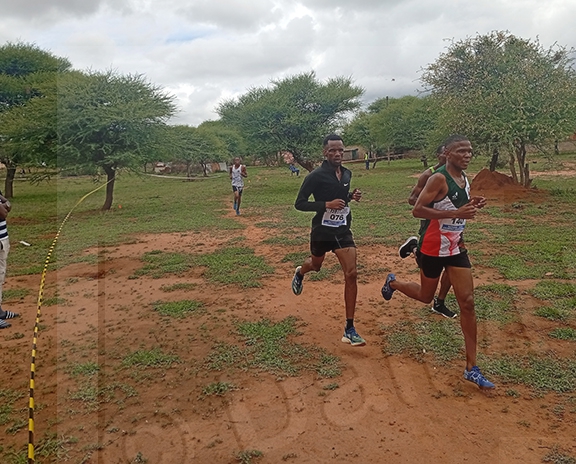Football commercialisation still mirage
30 Mar 2015
For many years now, government’s efforts to diversify the economy and move away from over dependence on diamonds have born little success.
Various industries such as sport, entertainment and culture have lately emerged as potential areas of economic growth that could employ many young Batswana roaming the streets, some with degree qualifications.
Football, for one, has been informally employing many players with few of them on full time employment as football players. Football teams could not afford to hire all of them on a full time basis and pay them decent salaries as they are still run as societies and supposedly not making any profit.
Attempts to bring the commercial aspect on board in various forms come in bits and pieces, making it difficult to have serious investors joining in the financing
joining in the financing of the game.
of the game.
Fingers are often pointed at the societal mentality of running teams, where some teams still have no offices or a secretariat and this has proved to all and sundry as the stumbling block to commercialization of the game.
At one point, through a blueprint adopted as a resolution at a consultative meting conducted at the Selibe Phikwe Cresta Bosele Hotel a few years ago, local football was being turned into a commercial entity, a turnabout that would maximise the potential for clubs to be run professionally.
Though the Bosele Declaration was a blueprint that many were skeptical about, others viewed it as the panacea that the doctor had ordered for the ailing and stagnant growth of local football.
Teams such as Mochudi Centre Chiefs, Township Rollers, Notwane, Gaborone United and BMC toyed around with the idea, albeit with success and failure as a result of various reasons.
Local football teams across all the leagues are controlled by the football governing body in the country, Botswana Football Association (BFA), and they are mostly registered as societies with the Registrar of Societies.
They operate on a different level and understanding from that of companies that are registered with the Registrar of Companies and Intellectual Property.
This situation sees the locals or the supporters of a team calling the shots at any given day as they have the ability to select and fire a whole executive committee at their team’s mandatory annual general meeting (AGM) or special general meeting.
The latter’s convening and sole purpose would often be to pass a motion of no confidence on the committee they democratically elected.
As such, all the executive committees of football teams in the country registered by the BFA have an annual obligation to file returns with the Registrar of Societies in order to be in good books.
Failure to do so could spell trouble and in addition, they have to register with their BFA regional committees annually and pay a certain fee in order to continue affiliated.
Anything to the contrary could spell doom as has been experienced by the then Police XI and Security Systems, which failed to affiliate with their respective regions, leading to their membership cancellation.
“We need to educate our football supporters about the benefits of running teams as companies as against the current status quo of societies,” opined Andrew ‘Druzah’ Modo, a local football supporter in an interview.
He alleged that committees that are often so opposed to handing teams over to investors to run as companies are scared of losing their grip on the gate takings purse.
to run as companies are scared of losing their grip on the gate takings purse.
This, he noted, is what makes it difficult to commercialize local football, for the committees know that they account less or not at all when they are run as societies.
Furthermore, Modo said the issue of commercialization has caused divisions amongst most supporters and they need to be grilled on the basics of how to run a professional team.
However, another football supporter, Mpho Mfolwe, who is based outside the country, sees things differently.
He said societies are not delaying commercialization as a lot more elements are at play, including take over issues, which in any set up means the societies must be compensated for ownership.
Mfolwe said if the society is to own a stake in the new entity, it must be well defined and presented.
He cited as examples, Real Madrid in Spain and Manchester United in England, which he said have viable models of ownership where supporters have a stake.
Mfolwe also noted that the commercial viability of the local game could be a factor to the delay as most teams have no stadia, transport, team accommodation, just to mention a few.
He said the new management taking over from a society only inherits the name and the league status and a colossal investment gap to turn the fortunes around.
gap to turn the fortunes around.
Kweneng Regional Football Association (KRFA) chairperson, Lekgotla Raditloko argued that there is need to be clear too on the model to adopt when going private.
He supports the idea of turning teams into professional entities but as a precursor, he emphasized that education on the modalities is vital to avoid infightings that have occurred in some clubs already.
Also, he called for benchmarking exercises with teams that are already privatized and see the benefits derived, emphasizing that at the end of the day, all interested parties should come out of any deal with happy smiles.
As the Bosele Declaration document continues to gather dust and implementation being done haphazardly, supporters and teams’ committees, together with potential investors would always have differences on how best to take football out of the doldrums into a giant commercial entity. ENDS
would always have differences on how best to take football out of the doldrums into a giant commercial entity. ENDS
Source : BOPA
Author : Kesentse Ketumile
Location : FRANCISTOWN
Event : Football analysis
Date : 30 Mar 2015







